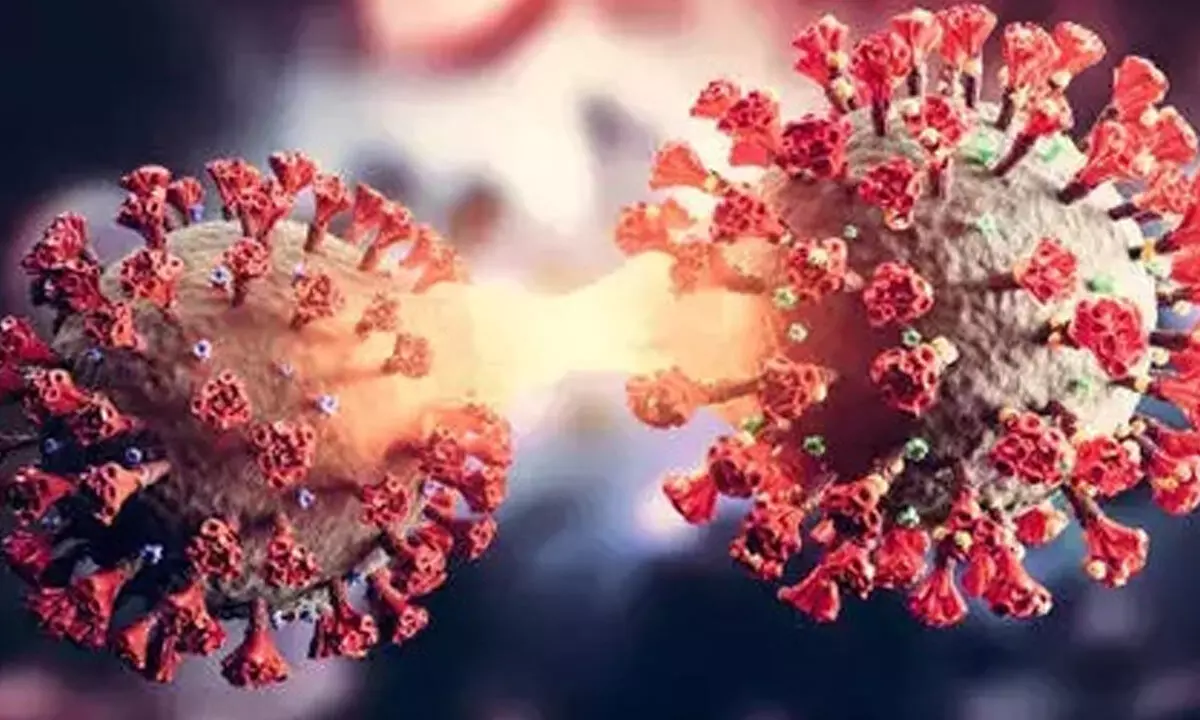Live
- PM Modi should order arrest of Adani: CPI
- Anarkali suits for everyday elegance
- HMWSSB ED inspects Khajakunta STP
- Bhumi Pednekar: Became an actor in a time where the way I looked was secondary
- PM Modi meets 31 global leaders during 3-nation tour
- Sneha Wagh says she couldn’t recognise herself in divine avatar
- Study shows why you regain lost weight
- Boosting digital health and AI research
- Adani Group stocks rebound as Sensex and Nifty surge
- Future-proofing career with industry-ready essential skills
Just In

Covid-19 hospitalisations have increased by 24 per cent in one week in the UK as new variant BA.2.86, dubbed as Pirola, sweeps across the country.
London: Covid-19 hospitalisations have increased by 24 per cent in one week in the UK as new variant BA.2.86, dubbed as Pirola, sweeps across the country.
According to data published by the UK Health Security Agency (UKHSA) from the last week of September, the number of people testing positive for the virus increased by over 29.4 per cent on the week before, despite a reduced testing infrastructure, reports The Independent.
The concerning numbers come as the highly mutated Pirola reached over 100 cases in the country, according to the Covid variant tracker GISAID.
Pirola is the latest Omicron strain to appear this summer, raising concerns among specialists since it contains 34 additional mutations that could make it easier to avoid immunisations.
As per GISAID, Pirola has so far been detected in 15 countries globally, including France, Japan, Australia and Denmark. According to the report, the number of patients in hospitals has been rising since mid-July in the UK.
In the week up to and including 29 September, 3,819 Covid patients were admitted to hospital, a 24.8 per cent rise over the previous week.
"While this is still very early data and more research is needed before we can be certain, it is encouraging to see an initial indication that BA.2.86 demonstrates similar levels of antibody escape compared to other variants circulating in the UK," Professor Susan Hopkins, Chief Medical Advisor, UKHSA was quoted as saying.
"The available data is too limited to draw conclusions about the severity of the illness it causes, but there is so far no evidence to suggest that it is more likely to make people seriously ill than other Omicron variants in circulation," she added.
The new strain's most common symptoms are a runny nose, headache, lethargy, sneezing, and a sore throat.
Three other symptoms that have been regularly reported are -- diarrhoea, eye irritation, and rashes.

© 2024 Hyderabad Media House Limited/The Hans India. All rights reserved. Powered by hocalwire.com






